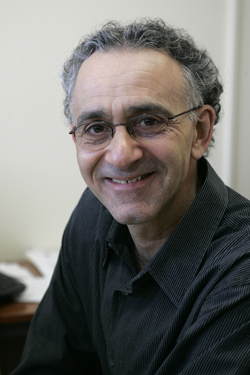Temple receives $1.56 million NIH grant to develop anticancer drugs
| Before patients can participate in studies for new drug treatments, researchers like Temple University’s James M. Gallo, Pharm.D, Ph.D., need to determine if the right drug has been selected, along with the optimal dosage regimen.
Gallo, a professor in the Department of Pharmaceutical Sciences at the School of Pharmacy, received a $1.56 million grant in July from the National Institutes of Health to develop a new drug development paradigm for targeted anticancer drugs for brain tumors. “There are many approaches to moving drugs from discovery to clinical use,” said Gallo. “However, none of them has adequately incorporated quantitative pharmacological methodologies.” Without a more thorough approach, the end result could lead to the selection of a drug for clinical use based on incomplete data and without a foundation to use the drug clinically. |
 Photo by Joseph V. Labolito/Temple University
James M. Gallo
|
|
|
|
|
Both PK drug characteristics, which address relationships between dose and concentration versus time, and PD drug characteristics, which address relationships between concentration and effect versus time, will be cast into predictive models. The goal is that to use the models to relate preclinical data to patients, Gallo said. “Because these models are focused on the PK/PD behavior of drugs in the tumor, they offer the most rational basis to select drugs for development and to design optimal dosing regimens in patients,” Gallo said. —Written by Anna Nguyen |